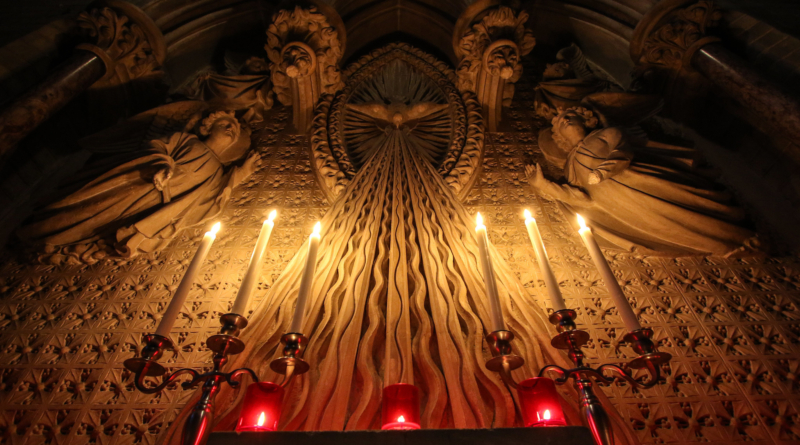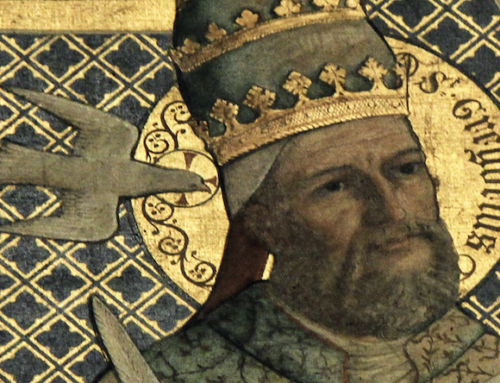2022 Summer Reading Recommendations
The Gifts of the Holy Spirit in the Dominican Saints
by Ambroise Gardeil, O.P.
Wisdom, Understanding, and Knowledge. Counsel and Piety. Fortitude and Fear of the Lord.
Does this list sound familiar?
Before receiving the sacrament of Confirmation, Catholics are often told to memorize seven Gifts of the Holy Spirit. Initial catechesis usually names these gifts and moves on. But can we say more? We can certainly clarify that the gifts are first given not at Confirmation but at the moment of Baptism, when they perfect the interior transformation of the soul by grace. But are the seven gifts truly distinct realities, or are they just poetic names for the mysterious work of the Spirit?
In The Gifts of the Holy Spirit in the Dominican Saints, Ambroise Gardeil (d. 1931) weds precise moral realism with fervent devotional preaching to answer exactly this question. Himself a spiritual master, this Dominican priest has at his disposal the whole intellectual heritage of the Thomist tradition. Drawing upon the work of John of St. Thomas and that of Aquinas himself, Gardeil offers eleven spiritual conferences as an eloquent tribute to the Author of Grace.
Gardeil’s conferences first contrast the seven gifts with the theological virtues. The virtues of faith, hope, and charity stably equip our intellects and wills to make supernatural movements of knowing and loving. In the gifts, however, we receive stable supernatural perfections that equip us to be moved in a divine mode, in a way that human reason can neither grasp nor initiate. Our acts remain our own, but they exceed our understanding: God himself moves us according to his wisdom (ST I-II q. 68). The gifts serve as spiritual instincts for the soul, once it is healed and elevated by grace.
After this introduction, Gardeil distinguishes the seven gifts from each other by pairing each with one or more Dominican saints. For example, St. Rose exemplifies the gift of fear, St. Antoninus the gift of counsel, and St. Raymond the gift of piety. This unique exercise proves especially rich, for these holy men and women embodied what speculative moral theology teaches about each gift. To be sure, anyone who has charity has all seven gifts of the Spirit (ST I-II q. 68, a. 5). And yet God, in his wisdom, activates these gifts differently in the life of each individual saint: “The wind blows where it wills . . . so it is with every one who is born of the Spirit” (John 3:8). The Spirit gave to the martyrs the courage to confess Christ, to St. Dominic an outstanding sensitivity to our fallen condition, to St. Catherine a piercing insight into the truths of faith, and to St. Thomas a sweeping vision of the things of God. Only God, in his provident knowledge, could understand and foreknow the surprising ways that he drew each saint to himself.
But why read a book about Dominican saints? First, for those who are Dominicans and depend on these saints as models and intercessors, the book is a must-read. For everyone else, I recommend this work for its incomparable clarity about what the gifts are. Some of the saints are household names. But the work of God shines forth brilliantly even in our less familiar patrons: e.g., St. Agnes of Montepulciano, St. Antoninus, and St. Catherine de Ricci. Perhaps this book deserves contemporary imitation for a broader audience, but few could imitate this masterpiece. Only someone who grasps the apparently dry truth that the gifts “as to their essence” remain in heaven (ST I-II q. 68, a. 6) could write this book’s finale, which so forcefully conveys the splendor of heavenly glory. All of us are called to this glory, and so this book is for everyone.
The gifts of the Spirit, unlike the virtues, are not ours to direct as we will. We wait upon God, who himself is the wind who fills our spiritual sails. At the same time, however, we pray for God to activate in us his seven gifts, and the more we know about these gifts individually, the more we can ask for them specifically, according to our daily needs. Thus may the Spirit, as he does for every saint, govern us firmly and sweetly the whole of our lives.
✠
Photo by Fr. Lawrence Lew, O.P. (used with permission)







